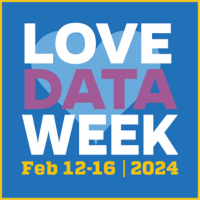Love Data Week Session Talks: Analyzing the Archive: Working with Data from Text, Audio, and Video

Description
How might a computational approach to archival materials help researchers reconstruct hidden histories? These session talks will feature three projects that have synthesized archival materials such as corporate documents and handwritten tables to illuminate suppressed narratives.
"Supporting Use of Computational Methods on the Opioid Industry Documents Archive" (Kevin S. Hawkins)
The Opioid Industry Documents Archive (OIDA) team at JHU is developing the OIDA Toolbox – a set of options for accessing and working with the archive's growing collection of millions of documents arising from the opioid industry. This presentation will give a brief overview of the OIDA Toolbox and these options.
"Teaching with Historical Data" (Casey Marina Lurtz)
There's nothing like a messy handwritten table from 1900 to get people thinking about all the decisions and politics that go into making data. By introducing students to historical data and the processes of transcribing, standardizing, and visualizing it, we can help them understand what's behind the statistics we so often take as a given.
"Underwriting Souls: Digitizing Corporate Archives and Humanizing Data" (Alexandre White)
Underwriting Souls, launched in the fall of 2023 aims to contextualize our understanding of a particular archive of slavery, one centered on the financial systems that formed and maintained the Trans-Atlantic slave trade until its demise in the British Empire in 1807. It is also meant to serve as a critical means to question and confront the narratives that emerge from relatively unexamined documents. The collections of Lloyd's, the largest insurance and reinsurance market in the world, are critically important historical materials for understanding the histories of the Atlantic slave trade. While this collection details only a small period of the Atlantic slave trade, roughly 1794 leading up to the abolition of the British slave trade in 1807, these materials still provide a complex picture of the role of Lloyd's during the height of the slave trade. These materials also provide key insights into the practices of the Lloyd's market and the process of insuring slaving voyages. Such records are scant and limited and to our knowledge, some of these materials are likely the only of their kind. Furthermore, these materials shed light on the ways that slavery and the slave trade shaped the City of London.
See the entire schedule of Johns Hopkins Data Services' Love Data Week.
Who can attend?
- General public
- Faculty
- Staff
- Students







